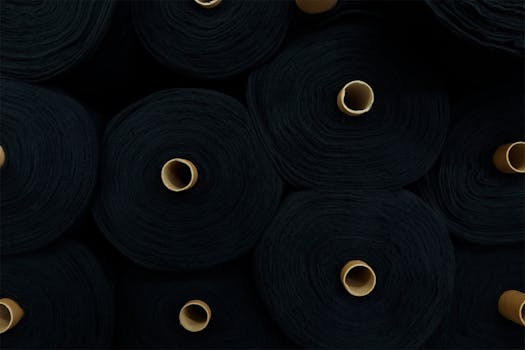
From Cotton to Innovation: How African Fiber Companies are Transforming Textiles
Introduction to African Fiber Companies and Textiles
From Cotton to Innovation: How African Fiber Companies are Transforming Textiles. The African textiles industry has long been a significant sector, providing employment and generating revenue for many countries on the continent. Traditionally, cotton has been the primary focus of this industry, with many African countries producing high-quality cotton that is then exported to other parts of the world for manufacturing into various textile products. However, in recent years, there has been a shift towards innovation and diversification in the African textiles industry, driven by the growth of African fiber companies. These companies are not only improving cotton production but also exploring other fibers, implementing sustainable practices, and creating finished products that cater to both local and international markets.
In this article, we will delve into the world of African fiber companies and their role in transforming the textiles industry. We will explore the current state of the industry, the challenges faced by African fiber companies, and the innovative solutions they are implementing to stay competitive and sustainable.
The Current State of the African Textiles Industry
The African textiles industry is diverse and complex, with different countries specializing in various aspects of the textile value chain. Countries like Egypt, South Africa, and Morocco have well-established textile industries, with a strong focus on cotton production, spinning, weaving, and knitting. Other countries, like Ethiopia and Kenya, are emerging as significant players in the industry, with a growing number of textile mills and manufacturing facilities.
Despite the progress made, the African textiles industry faces several challenges, including limited access to finance, inadequate infrastructure, and a lack of skilled labor. Additionally, the industry is highly competitive, with many African countries competing with other low-cost producers in Asia and Latin America. However, African fiber companies are responding to these challenges by investing in innovation, sustainability, and quality.
Innovation and Sustainability in African Fiber Companies
African fiber companies are at the forefront of innovation in the textiles industry, with many companies adopting new technologies and sustainable practices to improve their operations and products. One area of focus is the use of organic and sustainable cotton, which is grown without the use of toxic pesticides or synthetic fertilizers. This not only improves the environmental impact of cotton production but also provides a premium product that can command higher prices in the market.
Another area of innovation is the development of new fibers and textiles, such as bamboo, hemp, and recycled polyester. These fibers offer improved sustainability and performance characteristics, making them attractive to consumers and brands looking for eco-friendly products. African fiber companies are also investing in digital printing and other advanced manufacturing technologies, which enable them to produce high-quality, customized textiles with reduced waste and energy consumption.
Case Studies of African Fiber Companies
There are several examples of African fiber companies that are leading the way in innovation and sustainability. One such company is Vlisco, a Dutch-owned textile manufacturer with operations in Ghana and other West African countries. Vlisco is known for its high-quality, colorful textiles, which are designed and produced using a combination of traditional and modern techniques. The company has implemented several sustainable practices, including the use of organic cotton and a reduction in water and energy consumption.
Another example is the Ethiopian textile company, Ayka Addis, which has invested heavily in modern manufacturing equipment and sustainable practices. The company produces a range of textiles, including cotton, polyester, and blended fabrics, using advanced technologies like digital printing and solar power. Ayka Addis has also implemented a number of social and environmental initiatives, including a program to support local cotton farmers and reduce waste in its operations.
Conclusion and Future Outlook
In conclusion, African fiber companies are transforming the textiles industry through innovation, sustainability, and quality. From cotton production to finished products, these companies are adopting new technologies and practices to improve their operations and cater to the demands of a changing market. As the industry continues to evolve, we can expect to see even more exciting developments, from the growth of e-commerce and digital platforms to the adoption of new fibers and manufacturing technologies.




